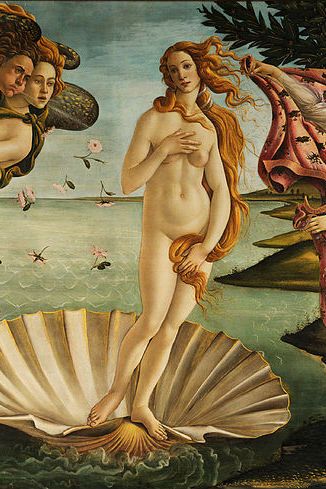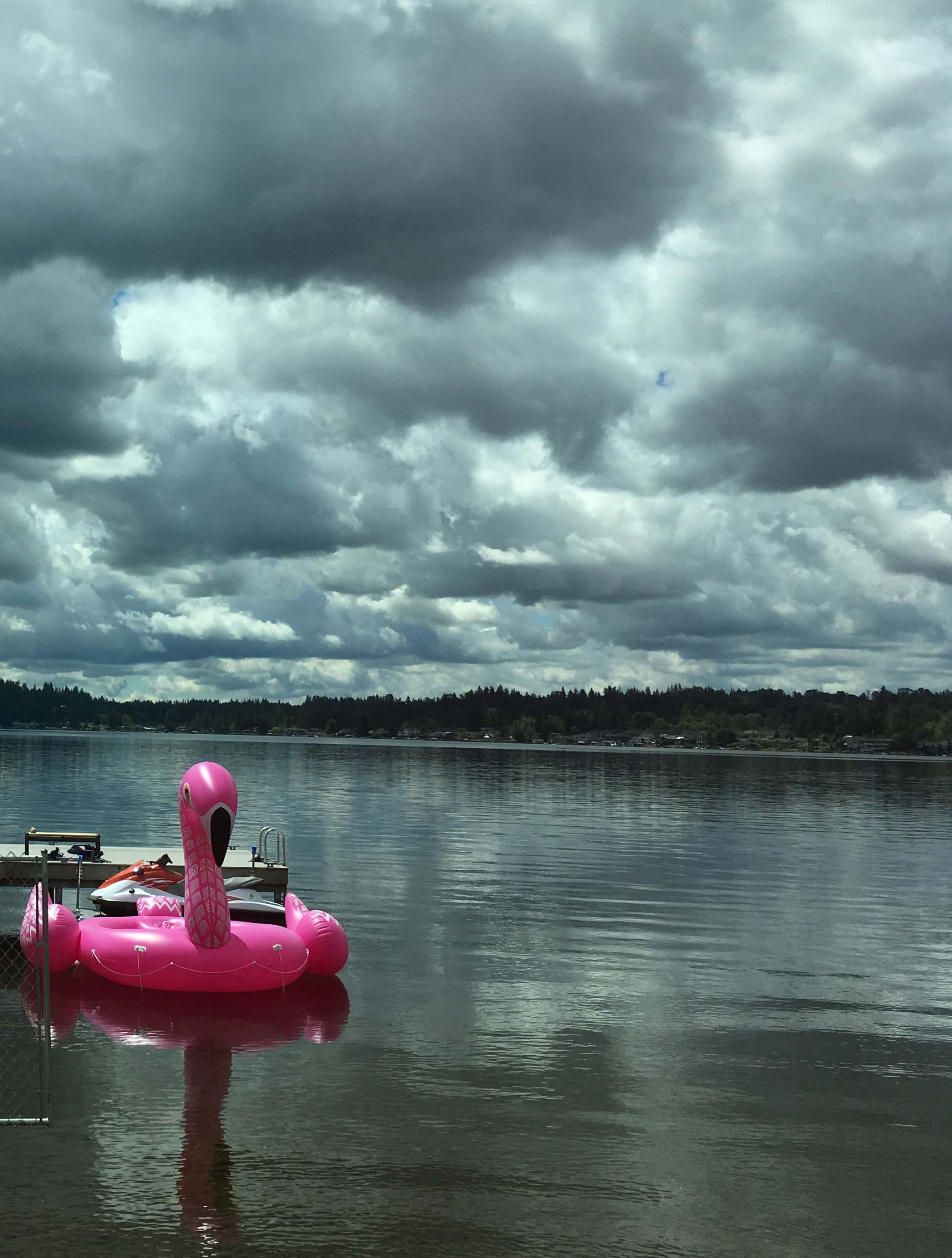
A few days ago I was inspired by a friend who posted five artworks depicting women from five different time periods, three different cultures (though all but one of the artists was European), and in three different media (oils, ink, photography). In our discussion, he mentioned content, which made me ask myself what ‘content’ referred to.
When Botticelli used what looks like the same model for The Birth of Venus and the Madonna with Child and Four Angels and Six Saints, what is the content—the woman’s angelic face or all the other things in the paintings?
Detail of The Birth of Venus. Sandro Botticelli. 1483-1485. Uffizi Gallery, Florence. Wikimedia Commons.

I came to the conclusion that content is the ‘story’
The content—the story—of the two Botticelli paintings is in one case ancient myth and in the other the established religion of the time. The model, whomay or may not be Simonetta Cattaneo de Vespucci (a fascinating, and controversial, story in itself) represents an ideal of beauty, but she is not the content.
I trained as a scientist and worked for years doing basic research
In the scientific endeavor, the content, the story, is the question being asked.
One might use observations, whether obtained from nature or within an experimental setup (in which the study system is controlled in some way), or a computer simulation, or a theoretical construct. But data, theory or models constitute simply the approach taken.
The question is what really matters. The scientist is expected to provide the best-reasoned answer to that question.
Now I spend my time writing stories
I’ve said that fiction is my preferred tool to ask questions.
Not to answer them.
What is the content then, what is the story? Again I believe it is the question being asked. But in fiction, the question is hidden, and that is in fact part of the appeal.
We’re told to write what we know
This makes perfect sense. A good story always is grounded in truth. The stories that grab you by the throat and don’t let go are always authentic stories.
But what defines what we know? Is it our direct experiences? Our biographies?
I hope not. Just imagine an editor speaking with Kafka:
But Franz, you’ve never actually been a cockroach. Perhaps Gregor’s ennui has led to a back spasm which prevents him from turning over or moving.
Where would we be if we wrote only from direct experience?
Direct experience is a truth
But there is always more than one truth, just as there is always more than one story and more than one way to tell it.
The stories that draw me now are only vaguely recognizable, if at all, from my life. They’ve been through a crucible. A crucible which burns them and changes their outward appearance.
Carbon dioxide to plants. Plants to jungles. Jungles to humus. Humus to coal. Coal to diamonds. Diamonds to dust.
Or maybe the stories are the crucible…
My protagonists are weavers, botanists, sculptors, circus aerialists, spies, physicists, and priests. Some live in countries I’ve never seen; others carried out their adventures before I was born.
Thank god for libraries and old movies, for newspaper archives, for the internet
After all, I am a researcher by training. I like to search and read and think about things I don’t already know. The stories I tell are the ones I choose to tell.
They dance around the questions that have become obsessions, the questions that pull on me for reasons I cannot articulate.
Because if I could articulate the why, my stories would become science, or at least non-fiction. And I would feel compelled to provide my best attempt at an answer.
But in fiction, the reader gets to answer the questions
Perhaps that’s why I moved away from scientific research. By using fiction to ask a question—to tell a story—the answers depend on the reader.
In fact, the reader may even find that the question is not the one I thought I was asking.
And you know, that’s part of the fun.

Very thought provoking post Marialena. And the editor speaking to Kafka made me smile !
Thanks, Downith. I’m feeling strongly that direct experience is not the ‘what you know’ that we’re supposed to write about. Unless we want to, of course! #NeverBeenACockroach #ProbablyWontWriteABoutBeingOneEither